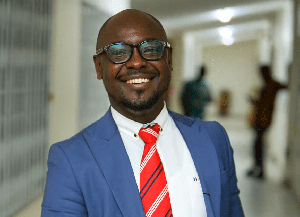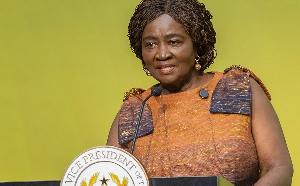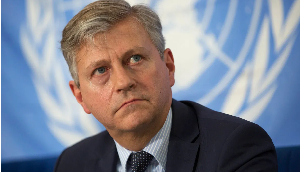Mr Alban S. K. Bagbin, Minister of Health, has called for the goodwill of all partners to ensure that the health agenda of the country was pursued.
Addressing the Ministry’s agencies, partners, stakeholders and civil society at the opening session of the Ministry of Health (MOH) Annual Health Summit in Accra on Monday, he said the partnership arrangements in the health sector remained an important framework for performance.
Mr Bagbin explained that, it was unique in many ways and offered a lot of credibility to the sector’s actions and achievements.
The week-long summit, on the theme; "Going Beyond Strategy to Action; All Hands on Deck for Millennium Development Accelerated Framework, MAF", would afford the Ministry and its agencies, partners, stakeholders and civil society an opportunity to reflect on their performance in the sector, map out the way forward and renew their commitment towards the people.
Mr Bagbin admitted that, although the sector had achieved so much over the year under review in terms of service delivery and infrastructure development, it had to double its efforts to achieve the Millennium Development Goal (MDG) by 2015.
He admitted the fact that the theme of the summit itself signalled that, Ghana might be behind in many of the MDGs targets and therefore, there was an urgent need for the sector to stop flagging its challenges and aim at addressing them to achieve the goals.
Mr Bagbin urged all stakeholders to demonstrate high levels of moral commitment and support towards key health interventions in the county.
He affirmed that there are still challenges in the high maternal and under-five mortality, good nutrition in children, increase burden in non-communicable disease as well as the rural-urban divide in the provision of service and infrastructure.
"It appears that Ghana is slipping in these interventions and called for attitudinal change by all, particularly health care providers towards patients, and the continuous support of MOH partners to sustain the sector's interventions for the achievement of the 2015 MDG targets."
The Health Minister however outlined the numerous aspirations of the Ministry, as well as government’s policies and programmes to secure the health of the country, but cautioned the health sector against deviating from its intended targets for the year as a result of being an election year.
“We should demonstrate to the electorate our strong commitment to a well thought plan that is to contribute to the on-going social and economic development of this country,” he said.
“That is why as a government, we continue to invest so much in the health sector,” he added.
Mr Bagbin said the sector had over the years benefited from the annual health summits, to learn and understand the reasons for its non-performance in many areas and identified both management and technical bottlenecks that militated against its performances.
“We have even had deep insights into management practices in some areas of our work through special studies, investigative work of journalists and other media groups,” adding that, all these assessments had no doubt revealed the sector’s challenges that needed to be resolved.
Mr Bagbin said, inspite of all the yearly revelations, the sector had failed to focus on its priorities or had been too ambitious or tried to satisfy everyone to the extent that, its performance in some key areas had remained low.
He stressed on the urgent need for the sector to focus on efficient and effective use of available resources in addressing the challenges of service delivery.
Mr Bagbin said “With the calibre of personnel at our disposal and the kind of partnership arrangements we have in the health sector, Ghanaians will not forgive us if we fail to meet their health needs”.
He said the sector must now focus attention on strategies that would deliver health to the people of Ghana
"We need to go beyond the numerous strategies that had been initiated over the years to real action with a focus on how to deliver healthcare to Ghanaians.
Dr Sylvester Anemane, Chief Director, MOH, explained that instead of the normal two summits in a year, a decision had been agreed upon by stakeholders to run only one summit each year in April, starting from this year.
He explained, this would allow ample time for data collection and compilation for discussions.**
Health News of Monday, 23 April 2012
Source: GNA












